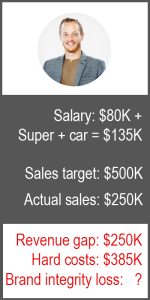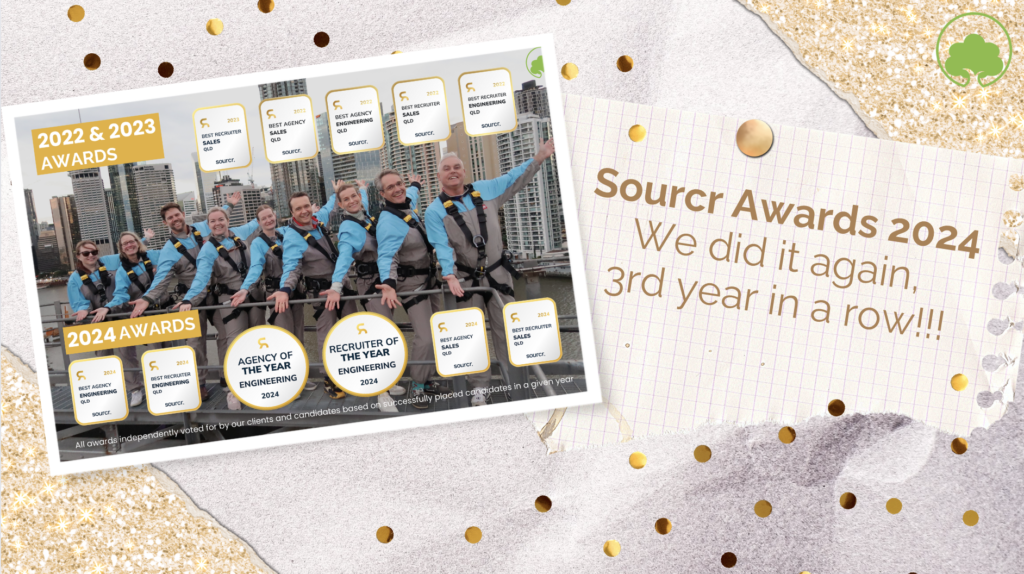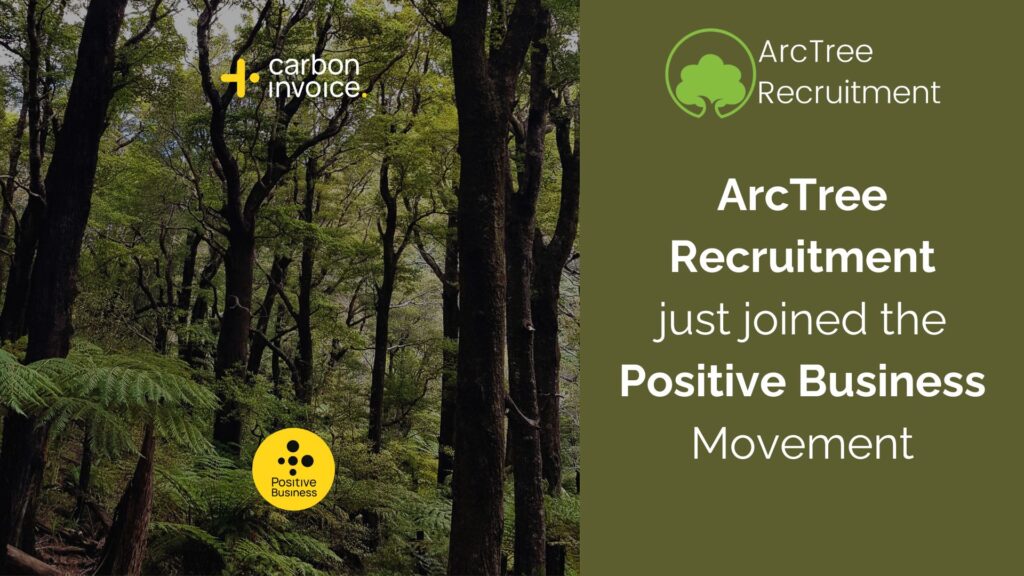 By Alan Chambers, ArcTree Managing Director
By Alan Chambers, ArcTree Managing Director
You need to hire a new salesperson.
This person is going to be responsible for bringing in new customers and, in an ideal world, contributing to scalable, predictable revenue growth for your business.
 Ben applies and looks fantastic on paper. He’s been working for a remote competitor for the past 3 years and wants a change. His resume shows strong sales experience over the past ten years and a swag of achievements. He’s extremely well connected on LinkedIn and has thousands of contacts and plenty of positive recommendations.
Ben applies and looks fantastic on paper. He’s been working for a remote competitor for the past 3 years and wants a change. His resume shows strong sales experience over the past ten years and a swag of achievements. He’s extremely well connected on LinkedIn and has thousands of contacts and plenty of positive recommendations.
You bring him in for an interview. In person, he’s very friendly and charming. He seems intelligent and interested in your business. He answers your questions eloquently and confidently and asks some insightful questions.
You ask him to sell you a pen – the classic Wolf of Wall Street question – and he asks you why you last used a pen. You tell him it’s to sign customer contracts and he tells you how you shouldn’t just use any pen to perform at task of that magnitude. You need a special pen, and he just sold boxes of these to Richard Branson, who uses only these pens to sign his contracts.
You’re all extremely impressed, and even more so when he does a great job of role-playing a sales meeting with one of your prospects, selling your products.
His references are glowing. He can start in two weeks. And so begins the story of a mutually beneficial relationship.
Or does it?
After twelve months, however, Ben is one of your lowest earning salespeople. He’s bringing in a few customers, but continually struggling to meet his targets.
 You’re faced with a serious and very real decision: do you invest money in training Ben to help him acquire the skills he needs to be successful? If you’re going to train him, how do you know what training he actually needs to be successful?
You’re faced with a serious and very real decision: do you invest money in training Ben to help him acquire the skills he needs to be successful? If you’re going to train him, how do you know what training he actually needs to be successful?
Or, do you let him go and go back to the drawing board, hoping you’ve learned from your mistakes and will hire someone better next time around?
For years now, industries like finance and marketing have used predictive analytics to help them collect and analyse data about what makes someone a good loan risk and which channels are going to perform best and are worth spending your marketing budget on. In the case of loans, they do this by analysing the attributes of people who repay their loans on time and then applying that model to people who apply for loans, to make sure they fit within an acceptable profile.
It’s exactly the same with hiring people.
We have the ability to accurately predict how someone will perform on the job, by analysing the attributes of top performers. Once we have enough data about top performers, we can then confidently measure new candidates against the same criteria and predict their levels of performance and identify skills gaps.
So what does all of this have to do with interviews?
We know that structured interviews (asking every candidate the same questions and grading their responses on a clearly defined scale) are far better than unstructured interviews at predicting job performance. But so does everyone else.
To really accelerate our hiring processes and make sure we know what we’re getting before it’s too late, we apply predictive analytics to the recruitment process. And then – this is the secret weapon bit – while we use a structured interview for the most part, we also make sure we address any potential gaps or problem areas in the interview.
Next week, we’ll show you how completing an evaluation of Ben before the interview could have:
– Identified attributes you wouldn’t otherwise know about
– Compared Ben’s attributes to profiles of your top salespeople
– Highlighted problem areas
– Provided guided interview questions to probe more deeply into potential gaps
– Allowed you to avoid making a costly hiring mistake.
Check out part 2 next week to see how a data-driven interview can save you thousands.
Are you hiring someone right now? See for yourself how data-driven interviews can give you invaluable insight into your candidates and prevent expensive hiring mistakes with 2 free candidate profiles.










